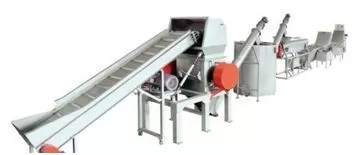Plastic pollution is an issue that has been creeping up on us for decades. We all know it, we see it, and we live with it. But what are we doing about it? In Turkey, they’ve rolled up their sleeves and got to work on some serious plastic pollution control policies. Let’s dive into what Turkey is doing to combat this environmental menace.

Turkey has implemented a range of policies aimed at reducing plastic pollution. These include banning single-use plastics, promoting recycling, and encouraging sustainable practices across industries. These measures are part of a broader strategy to protect the environment and promote public health.
Plastic pollution control is no small feat. It requires coordinated efforts from the government, businesses, and the public. Let’s explore how Turkey is handling this challenge.
What are the Key Policies Implemented by Turkey?
Turkey has taken several bold steps to address plastic pollution. One of the most significant policies is the ban on single-use plastics, which came into effect in 2019. This ban includes plastic bags, straws, and cutlery. Additionally, the government has introduced a mandatory recycling program for plastic waste. This program aims to increase the recycling rate and reduce the amount of plastic waste ending up in landfills.
How is the Ban on Single-Use Plastics Enforced?
The enforcement of the ban on single-use plastics is a critical aspect of Turkey’s strategy. Retailers are required to charge for plastic bags, encouraging consumers to bring their own reusable bags. There are also strict penalties for businesses that fail to comply with the regulations. These measures have significantly reduced the use of single-use plastics in the country.
What Role Does Recycling Play in Turkey’s Strategy?
Recycling is at the heart of Turkey’s plastic pollution control policies. The government has set ambitious recycling targets and is investing in recycling infrastructure. This includes the construction of new recycling plants and the upgrade of existing facilities. Public awareness campaigns are also in place to educate citizens about the importance of recycling and how to properly segregate their waste.
How is Public Awareness Being Raised?
Raising public awareness is crucial for the success of any environmental policy. In Turkey, various campaigns have been launched to educate the public about plastic pollution and the steps they can take to reduce their plastic footprint. Schools and community groups are actively involved in these campaigns, promoting a culture of sustainability among the younger generation.
What Incentives are Provided for Businesses?
To encourage businesses to adopt sustainable practices, the Turkish government offers several incentives. These include tax breaks for companies that invest in recycling technologies and grants for startups developing innovative solutions to reduce plastic waste. These incentives are designed to make it financially viable for businesses to go green.
How is Technology Being Used in Plastic Pollution Control?
Technology plays a vital role in tackling plastic pollution. In Turkey, cutting-edge technologies are being used to improve the efficiency of recycling processes and develop new materials that are more environmentally friendly. Research and development in this area are heavily supported by the government, ensuring that Turkey stays at the forefront of innovation in plastic pollution control.
What Challenges Does Turkey Face in Implementing These Policies?
Despite the progress made, Turkey faces several challenges in implementing its plastic pollution control policies. These include logistical issues in waste collection, resistance from businesses used to traditional practices, and the need for continuous public education. Addressing these challenges requires a coordinated effort from all stakeholders.
How Does International Cooperation Help?
International cooperation is essential in the fight against plastic pollution. Turkey actively participates in global environmental initiatives and collaborates with other countries to share best practices and technologies. This cooperation helps Turkey to stay updated with the latest advancements and ensures that its policies are in line with global standards.
What are the Future Prospects for Turkey’s Plastic Pollution Control?
The future of plastic pollution control in Turkey looks promising. With continued government support, technological advancements, and increased public awareness, Turkey is well on its way to significantly reducing its plastic waste. Future policies are likely to focus on further reducing plastic production and enhancing recycling capabilities.
Conclusion
Turkey’s approach to plastic pollution control is comprehensive and multifaceted. By combining policy measures, technological innovation, and public engagement, Turkey is making significant strides in addressing this global issue. The journey is ongoing, but the progress so far is commendable.
